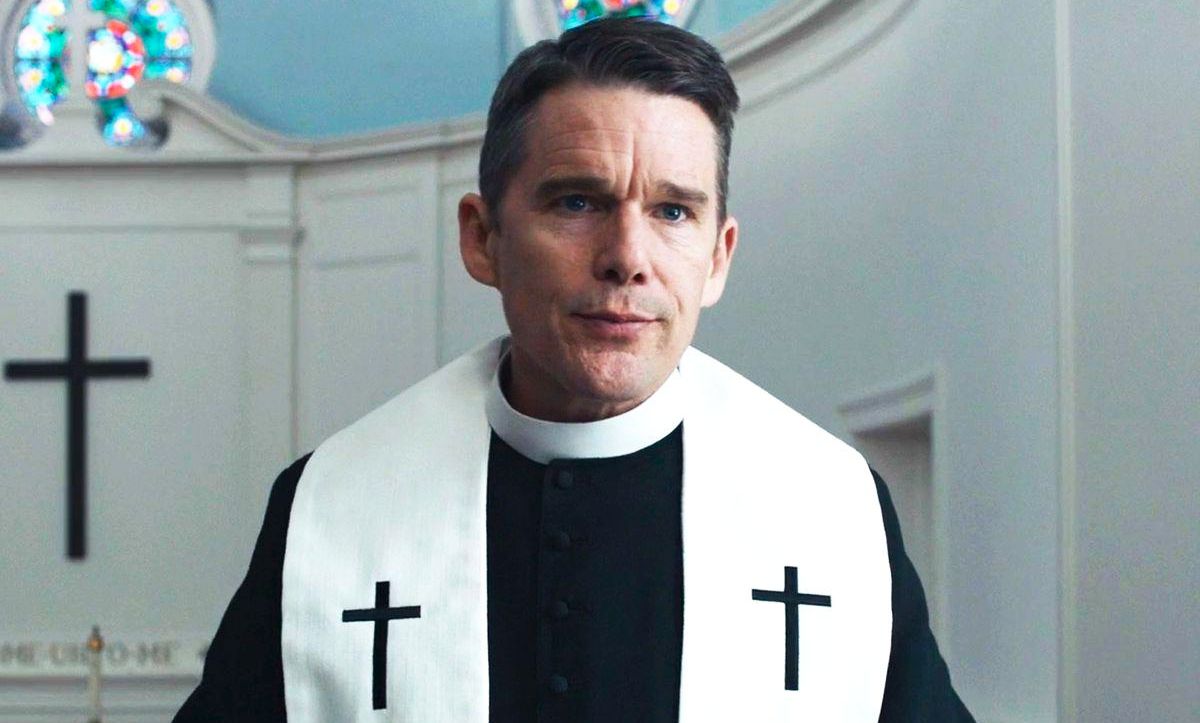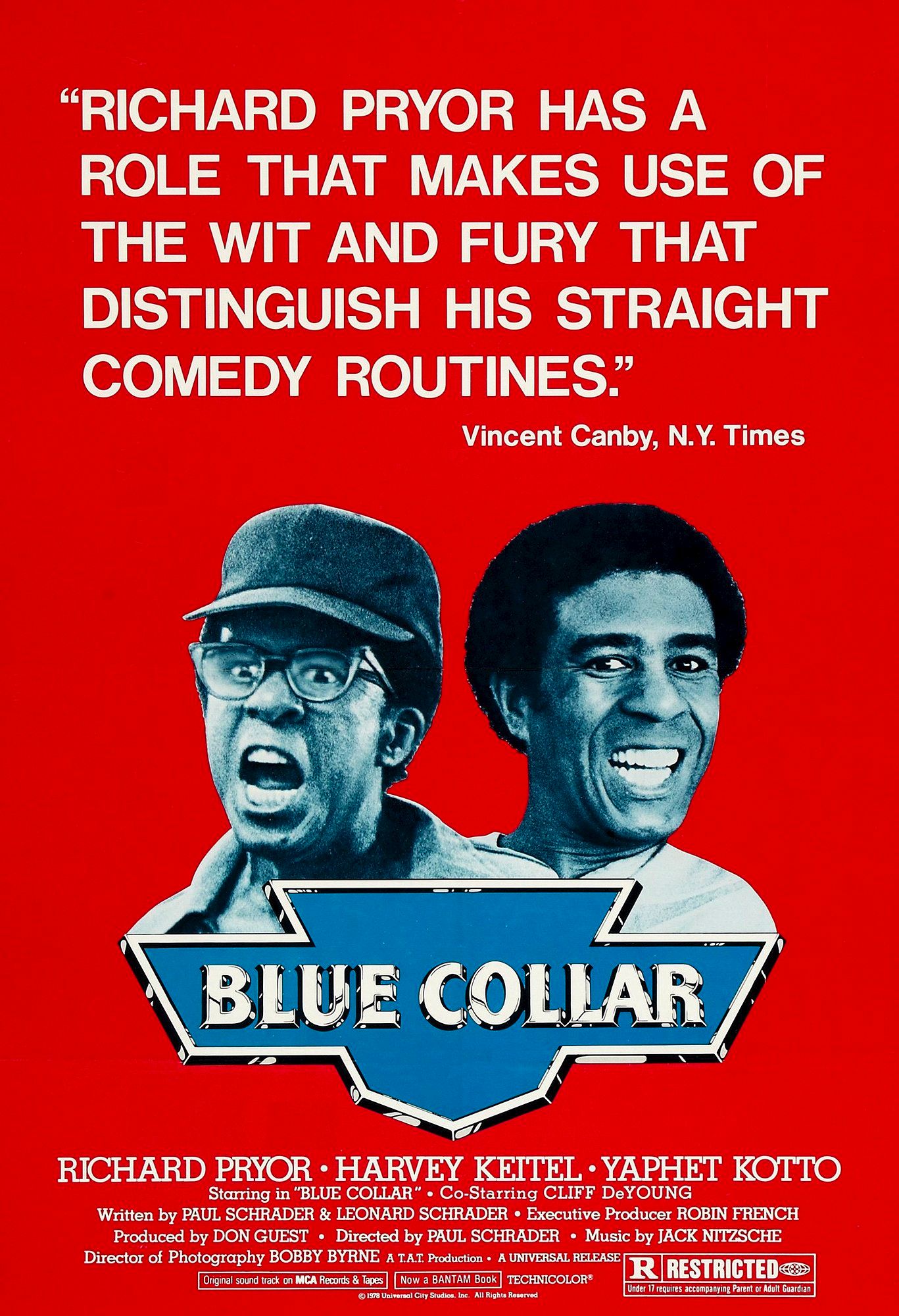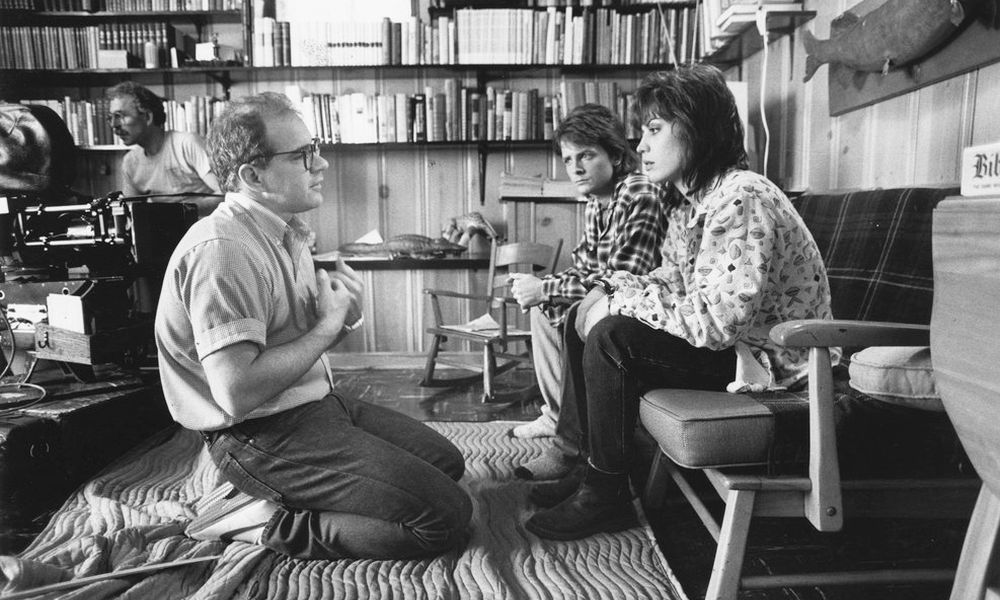"The films of Paul Schrader are marked by schizophrenic tension: thematically, between repression and indulgence, spirit and flesh; stylistically, between art and entertainment. Indeed, few American directors have produced such an obsessive, personal body of work." - Geoff Andrew (The Film Handbook, 1989)
Paul Schrader
Director / Screenwriter
(1946- ) Born July 22, Grand Rapids, Michigan, USA
(1946- ) Born July 22, Grand Rapids, Michigan, USA
Key Production Countries: USA, UK
Key Genres: Drama, Crime Drama, Thriller, Psychological Drama, Addiction Drama, Crime, Mystery, Biopic, Family Drama, Action, Romance
Key Collaborators: John Bailey (Cinematographer), Willem Dafoe (Leading Actor), Ed Begley Jr. (Character Actor), Leonard Schrader (Screenwriter), Alexander Dynan (Cinematographer), Kristina Boden (Editor), Benjamin Rodriguez Jr. (Editor), Angelo Badalamenti (Composer), Christopher Walken (Leading Actor), Natasha Richardson (Leading Actress), Linda Reisman (Producer), Ed Lachman (Cinematographer)
Key Genres: Drama, Crime Drama, Thriller, Psychological Drama, Addiction Drama, Crime, Mystery, Biopic, Family Drama, Action, Romance
Key Collaborators: John Bailey (Cinematographer), Willem Dafoe (Leading Actor), Ed Begley Jr. (Character Actor), Leonard Schrader (Screenwriter), Alexander Dynan (Cinematographer), Kristina Boden (Editor), Benjamin Rodriguez Jr. (Editor), Angelo Badalamenti (Composer), Christopher Walken (Leading Actor), Natasha Richardson (Leading Actress), Linda Reisman (Producer), Ed Lachman (Cinematographer)
“Like other directors who began in the ranks of cinephile critic, Schrader loads his work with reference and allusion… Schrader's interest in film noir is evident in works from the neo-Expresssionist Taxi Driver through Light Sleeper to the film noir romance of Forever Mine (1999).” - Constantine Verevis (501 Movie Directors, 2007)
"He has proved himself an edgy, intellectual director, who has always stood on the periphery of the mainstream, choosing subjects that mark him out as a marginal independent… Schrader has alternated between scriptwriting jobs for other directors, and the making of his own tormented films, which include the excellent Mishima: A Life in Four Chapters (1985), and the extremely overwrought The Comfort of Strangers (1990). A philosophy major and film theoretician, Schrader has the courage to take risks, but his self-awareness can sometime backfire on him." - Mario Reading (The Movie Companion, 2006)

First Reformed (2017)
"A titan of the American cinema who emerged from the ranks of the 1970s movie brats with his era-defining screenplay for Taxi Driver, writer-director Paul Schrader has pursued a defiantly singular vision in his provocative explorations of guilt and salvation in a soul-sick world." - The Criterion Channel
"Schrader had a strict Calvinist upbringing - he was not allowed to see a movie till his mid-teens - and many of his films are obsessed with guilt and death. His script for Taxi Driver (1976) was the first of three collaborations with Scorsese, later he wrote Raging Bull (1980) and The Last Temptation of Christ (1988). But he also showed himself a talented director with such films as Blue Collar (1978), Hardcore (1979) and American Gigolo (1980)." - The Movie Book, 1999
"Schrader makes the sort of serious, character-driven films that always seem to be going out of fashion. He is perhaps best known for his screenplays for Martin Scorsese—Taxi Driver and Raging Bull among them—but he has made more than twenty films of his own, including Mishima: A Life in Four Chapters, Light Sleeper, and Affliction. His greatest commercial success, American Gigolo, from 1980, with a young Richard Gere in Armani, helped set the tone and the look of the decade that followed. Many of these movies feature an archetype Schrader calls “God’s lonely man,” or “the man in the room.” Solitary, obsessive, in turmoil, this man writes in a journal and waits, trying not to boil over. Invariably, something terrible happens. Over the years, the character has been a cabbie, a sex worker, a drug dealer, a card sharp." - Alex Abramovich (The New Yorker, 2023)
"While it is doubtless fanciful and recherché to read Paul Schrader’s movies as unmediated reflections of his own life and feelings, it is nonetheless true that the director/screenwriter’s ‘‘religious fascination with the redeeming hero’’ echoes his extreme fascination with himself. The incredible urge that his characters have to confess (Schrader frequently resorts to voice-overs and interior monologues), exemplified by Travis Bickle’s mutterings in Taxi Driver, Christ’s musings on the cross during his Last Temptation, and Patty Hearst’s thoughts about her abduction, suggest that his films are firmly rooted in self-analysis." - G.C. Macnab (International Dictionary of Films and Filmmakers, 2000)
"For nearly half a century, Paul Schrader has crafted a personal and provocative body of work typified by an obsessive focus on moral decay, isolation, and self-redemption across various dispirited pockets of the United States." - Film at Lincoln Center, 2023
“Falling in love with the movies, Schrader eventually became a film critic for the L.A. Weekly Press and also served as editor of Cinema Magazine. In 1972, his book Transcendental Style in Film: Ozu, Bresson, Dreyer was published… An intense screenwriter and director whose films are often challenging and controversial. Schrader intends to entertain, but his films are never mindless excursions into fantasy; unlike many Hollywood writers and directors, he rarely makes concessions to the marketplace. For the most part, he has been far more successful as a screenwriter than as a writer-director. In particular, his talents have been best brought out through his collaboration with strong, independent directors such as Brian De Palma and Martin Scorsese.” - The Encyclopedia of Hollywood, 2004
“The critic at heart is like a medical examiner. He or she simply wants to get that cadaver on the table and figure out how it lived. A film-maker is like a pregnant woman. All the film-maker wants is to give birth to a living thing. So if you allow the medical examiner into the birthing room he will kill that baby.” - Paul Schrader (The Guardian, 2016)
Selected Filmography
{{row.titlelong}}
GF Greatest Films ranking (★ Top 1000 ● Top 2500)
21C 21st Century ranking (☆ Top 1000)
T TSPDT N 1,000 Noir Films
R Jonathan Rosenbaum S Martin Scorsese
21C 21st Century ranking (☆ Top 1000)
T TSPDT N 1,000 Noir Films
R Jonathan Rosenbaum S Martin Scorsese
Paul Schrader / Favourite Films
The Conformist (1970) Bernardo Bertolucci, The Godfather (1972) Francis Ford Coppola, The Lady Eve (1941) Preston Sturges, Metropolis (1927) Fritz Lang, Persona (1966) Ingmar Bergman, Pickpocket (1959) Robert Bresson, The Rules of the Game (1939) Jean Renoir, Tokyo Story (1953) Yasujiro Ozu, Vertigo (1958) Alfred Hitchcock, The Wild Bunch (1969) Sam Peckinpah.
Source: Sight & Sound (2022)
The Conformist (1970) Bernardo Bertolucci, The Godfather (1972) Francis Ford Coppola, The Lady Eve (1941) Preston Sturges, Metropolis (1927) Fritz Lang, Persona (1966) Ingmar Bergman, Pickpocket (1959) Robert Bresson, The Rules of the Game (1939) Jean Renoir, Tokyo Story (1953) Yasujiro Ozu, Vertigo (1958) Alfred Hitchcock, The Wild Bunch (1969) Sam Peckinpah.
Source: Sight & Sound (2022)
Paul Schrader / Fan Club
David Ehrlich, Spike Lee, Joachim Trier, José Luis Losa, Martin Scorsese, Daniel Kothenschulte, Massimo Causo, Filipe Furtado, Ian Mantgani, Philip Concannon, Steph Green, Nellie Killian.
David Ehrlich, Spike Lee, Joachim Trier, José Luis Losa, Martin Scorsese, Daniel Kothenschulte, Massimo Causo, Filipe Furtado, Ian Mantgani, Philip Concannon, Steph Green, Nellie Killian.
"Fan Club"
These film critics/filmmakers have, on multiple occasions, selected this director’s work within film ballots/lists that they have submitted.
These film critics/filmmakers have, on multiple occasions, selected this director’s work within film ballots/lists that they have submitted.


